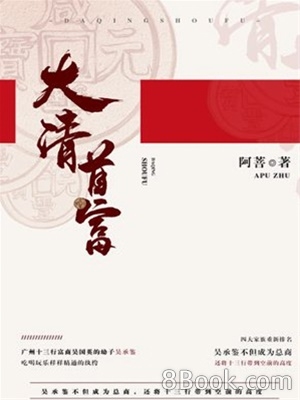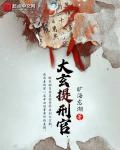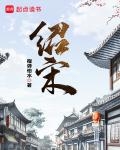Chapter 243: The Capital's Counterattack (Part 2)
"Brother Gao, why don't you wait a few more days?"
"No more waiting. I'm leaving today."
"Lord Lu has sent someone to say that he really couldn't leave yesterday..."
"I don't blame Lord Lu. I just don't want to gamble on such an illusory thing. Brothers, let's not go here." After saying this, Gao Pang picked up his bag and walked downstairs to the inn. Several scholars who were traveling with him felt that they could understand Gao Pang's feelings. The day before yesterday, Lord Lu said that he would invite Gao Pang to meet a senior official, and several of them were very jealous at the time.
Unexpectedly, Lord Lu sent someone to inform them at noon that he had something to do and the meeting had to be postponed. Now the mood of several people inexplicably improved, and they even felt that Gao Pang was really good at vision.
A few people escorted Gao Pang to the courtyard, and then they heard the sound of a gong outside. Everyone was familiar with this sound, which was a necessary tool for the messengers to clear the way when the list was announced. The eldest brother who wanted to be Gao Pang's father-in-law stopped and asked in astonishment, "The list was announced so early?"
Gao Pang smiled slightly, "Haha, maybe it's just to catch the rebels."
This joke was too cold, and no one responded. Gao Pang waited for a moment, laughed a few times to mock himself, and stepped forward.
Then, loud gongs were struck outside the door, and an officer shouted, "Congratulations to Mr. Gao for passing the exam! Congratulations to Mr. Gao for passing the exam!"
Gao Pang was a little surprised, but he saw several candidates staring at him with their eyes wide open. Gao Pang said quickly: "Maybe it's someone else who passed the imperial examination. There are many people with the surname Gao in this world..."
The innkeeper rushed out with hurried footsteps. He didn't have time to greet the group of scholars in the yard. He rushed to the door and opened it. At the same time, he asked loudly, "Which Master Gao is this?"
The officer shouted happily, "It's Master Gao Pang of Zhenjiang Prefecture! Congratulations to Master Gao for passing the exam!"
Gao Pang saw that the eyes of his brothers were about to pop out of their sockets, and he laughed dryly, "Maybe they got the name wrong..."
Before he finished speaking, he heard the boss shouting in surprise: "Oh my God! It's a winner. The last time our inn produced a Jinshi was thirty years ago!"
After expressing his sincere cheers, the boss rushed back to the yard, bowed to Gao Pang, and shouted, "Congratulations, Mr. Gao, on getting admitted to the university!"
The officers followed their boss into the yard, bowed to Gao Pang, and asked politely, "Excuse me, who is Master Gao Pang of Zhenjiang Prefecture?"
"I am Gao Pang." Gao Pang asked dazedly.
The officer quickly handed over the official document for the palace examination, "Congratulations to Master Gao for passing the exam! Congratulations to Master Gao for passing the exam!"
According to the rules, Gao Pang had to give money to the messenger. However, Gao Pang had already packed his gifts, and was so happy that he forgot about it.
Fortunately, the innkeepers in the capital were all experienced, and the accountant had already taken out several hundred yuan without even asking. The officers happily took the money, thanked them, and went to the next inn.
Gao Pang's classmates from Zhenjiang wanted to say something, but they couldn't. It was obvious that if they had passed the exam, the police would certainly not stop at this time to announce the good news to them. Everyone's expression was extremely complicated, even quite embarrassed.
Looking at the expressions of his classmates, Gao Pang finally returned to normal, "Brothers, I'll buy you a drink." He, who was not prepared to wait for the results to be announced, passed the exam, while others who were waiting for the results to be announced did not pass. Gao Pang could understand that these brothers would be in a bad mood.
The innkeeper quickly prepared a banquet, and Gao Pang stuffed a silver ingot into the innkeeper's hand. The innkeeper tightly grasped the silver in his palm, but refused, saying, "How can I take the silver from a Jinshi Gong?"
"Thank you very much for what you did just now." Gao Pang said. Just as he finished speaking, he heard footsteps and it turned out to be Lord Lu who pushed the door open and came in.
Seeing the distinguished guest, the innkeeper first greeted Lord Lu, then went out to continue his work with the silver given by Gao Pang in his hand.
At this point, Gao Pang had no right to decide anything. The process after the examination had been arranged long ago. First, the invigilators and some newly added university scholars would conduct a re-examination of the candidates who participated in the palace examination. After the re-examination, if it was determined that there was no problem with the candidates' academic knowledge, the emperor would conduct the palace examination.
Lord Lu cordially invited Gao Pang to stay at his house temporarily, but Gao Pang did not agree immediately. After the banquet, Lord Lu said goodbye. That evening, several local scholars also said goodbye to Gao Pang.
Gao Pang felt a little embarrassed when he thought about how he had to say goodbye to these people this morning. If he had left yesterday, things wouldn't have turned out so awkwardly.
As Lord Lu said before, this special examination was conducted very quickly. The double-section palace examination was completed in one go. In the heavily guarded Baohe Hall of the Forbidden City, Gao Pang looked up at the young Emperor Hong Zhou sitting on the seat in the hall, and then looked at the plaque "Huang Jian You Ji" hanging above Hong Zhou's seat, and then lowered his head to start doing the test paper.
The re-examination before the palace examination was also held in Baohedian. That time, the examiners gave another set of questions, which were answered . Gao Pang was not as lucky as last time. He could not remember the content of the Four Books quoted in one question. He thought he would be eliminated, but he passed the re-examination unexpectedly.
The real palace examination was not about the Four Books and Five Classics, but about policy essays. After reading the hundreds of words long question, Gao Pang felt a little troubled. This policy essay question clearly quoted the memorials of two ministers during the campaign against Huo Chong. The content of the essay was quite optimistic. Gao Pang recalled the war history of the Han army he had heard, which might be the one between the two former Shandong governors Li Shude and Xie Cilü.
Recalling their failure process, Gao Pang began to look for the basis of the strategy, that is, the internal logic of why the crusade failed.
Huo Chong said that all history is contemporary history. Gao Pang asked himself to get this basic point first, and connected the changes from Li Shude and Xie Cilu's defeat to the present. After making several logical relationship models on the manuscript paper, Gao Pang found a point. Then he wrote down the four words "Wei Qi Fei Qi". He also wrote down "Equal distribution means no bias, uniformity means no unity, uniformity means no use."
With the basic arguments and internal logic, Gao Pang began to write policy papers.
The palace examination started in the morning and lasted until dusk. Candidates could drink water from the bowls on the table and go to the toilet under the supervision of eunuchs, but they had no food. They either fainted from hunger and were carried out of the Baohe Hall, or walked out of the Baohe Hall after finishing their exams. One of the two choices.
Gao Pang had a full meal in the morning, and now he wrote quickly. He finished the draft at noon and had already written three thousand words.
Putting down his pen and taking a sip of water, Gao Pang recalled the key points of the palace examination mentioned by Mr. Banshan. The length of the essay is not limited, generally about 2,000 words, and the beginning, end and middle of the essay have certain formats and word limits. Special emphasis is placed on writing, which must be in regular script, the so-called "court style" or "official style". The characters must be square, round, black and large. From a certain perspective, calligraphy is often more important than writing.
Gao Pang sorted out the logic of what he had written, deleted many of the obviously divergent thoughts, and began to transcribe after sorting them out. By sunset, a policy paper was finally finished.
Gao Pang was doubting his logic at this moment, and he felt weak. He knew that he was a little exhausted from hunger. Huo Chong had described this state in detail. The weaker the body, the more suspicious and delusional it became.
Since he was already like this, there was no need to think about it any further. Gao Pang knew that this was his limit, so he checked for typos and handed in the paper.
At this time, half of the people in the palace examination had left, and the remaining people all had frowns on their faces and looked quite exhausted.
Since it was a palace examination, the chief examiner was actually Hong Zhou. Sitting high on the throne, Hong Zhou was not idle. The eunuchs kept handing in memorials, and he commented on them. When he couldn't comment on anything, he looked down at the examinees below to change his mood.
Hong Zhou knew that these people in front of him would be his important helpers. The first thing to do in this Enke was to make sure that the famous families among the Manchus would be loyal. If they were not loyal to Hong Zhou, they would be loyal to Hong Zhou's eighth uncle.
Hong Zhou felt that both he and his uncle had their own ideals and were willing to sacrifice everything for them. However, there were many speculators who wanted to take advantage of the civil war among the Manchus to gain their own benefits. These fence-sitters were even more hateful than those who defected to Hong Zhou's uncle.
Although these people are here to join Hong Zhou, I don't know if there are people in their families who are betting on both sides. If there are such people, we must catch them and punish them severely!
With such a mood, Hong Zhou was also hungry for a day. When the sun went down, the last examinee handed in his paper. The officials who received the paper, held the paper, and sealed the paper collected it for safekeeping.
Before dawn the next day, eight examiners arrived. According to the rules, each examiner had a table and took turns to read the papers, adding five kinds of marks: "○", "△", "", "1", and "×". The papers with the most "○" were the best papers. Then, the ten papers with the most "○" were selected and presented to the emperor. The emperor would designate the first, second, and third place papers as the top scholar, the second place, and the third place. The top three were called "Jinshi Jidi", also known as "San Dingjia".
The last examiner to come in was Old Thirteen. When the other seven saw Old Thirteen coming in, they immediately stood up and greeted him, "Your Majesty."
Old Thirteen waved his hand and said, "This Enke is of great importance. I'm sorry to trouble you all today."
"The prince is the one who is working hard."
In the past, the imperial examinations only had 40 to 50 candidates, but this time there were as many as 100. The examiners were busy for three days before they finished.
According to the rule that bannermen were not included in the top three, the top three were all Han Chinese. There were only four Han Chinese with the most ○s, so Hong Zhou's job was much easier.
Seeing Gao Pang's paper, Hong Zhou immediately read it. The core of Gao Pang's argument in this policy paper comes from the "Wei Qi Fei Qi" in the "Book of Shang". That is, it emphasizes the importance of the hierarchy in command and operation, and then extends to the fact that the current Qing Dynasty must establish an imperial dictatorship system. Only by establishing the absolute imperial power can all forces be mobilized to deal with external challenges.
Hong Zhou read the 2,000-word essay several times and could not bear to put it down. He forced himself to suppress his emotion and picked up the other three essays. Although they were not completely meaningless, they were far from being as convincing as Gao Pang's essay.
There was nothing much to say, so Hong Zhou thought for a moment and then wrote down the imperial edict.
The news in the capital was so well-informed that before the candidates from Zhenjiang who had gone to the capital to take the imperial examinations had even returned to Zhenjiang, someone had already knocked on Mr. Banshan's door. The servant saw that they were from the Zhenjiang prefectural government and quickly led them in.
When they arrived in front of Mr. Banshan's study, the servant couldn't help but shout, "Sir! Congratulations, sir. Your student Gao Pang has been chosen by the Emperor as the top scholar!"






